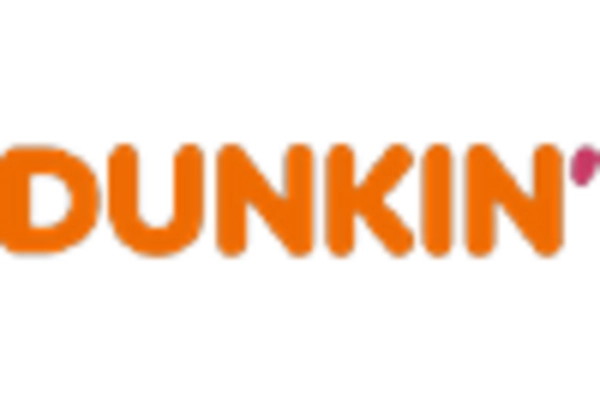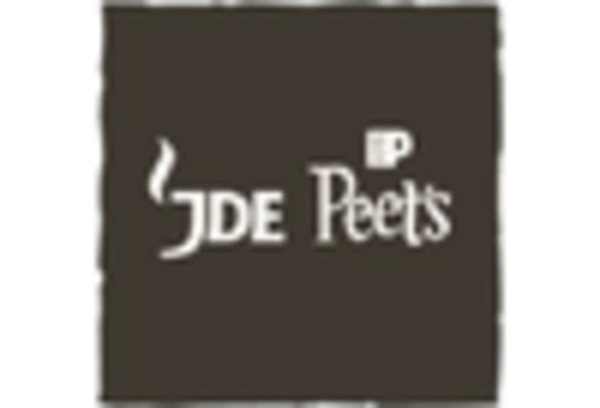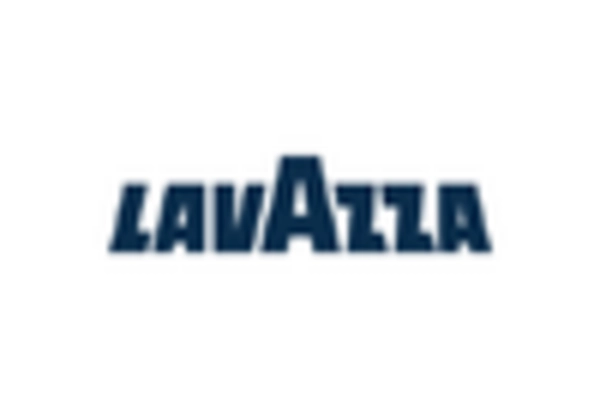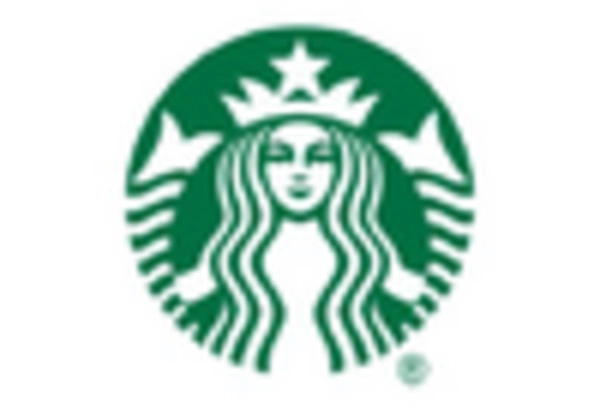Digital Transformation
Digital transformation is reshaping the coffee market in Germany, as technology plays a crucial role in consumer engagement and sales. E-commerce platforms are becoming increasingly popular, with online coffee sales projected to grow by 25% in 2025. This shift is prompting traditional retailers to enhance their online presence and offer convenient purchasing options. Additionally, mobile applications for coffee subscriptions and loyalty programs are gaining traction, allowing consumers to enjoy personalized experiences. The coffee market must embrace these digital trends to remain competitive, as consumers increasingly expect seamless online interactions and innovative purchasing solutions. Companies that successfully integrate technology into their business models may enhance customer satisfaction and drive revenue growth.
Health and Wellness Trends
Health and wellness trends are significantly impacting the coffee market in Germany. As consumers become more health-conscious, there is a rising interest in functional beverages that offer health benefits. Coffee infused with vitamins, adaptogens, and other health-promoting ingredients is gaining traction. In 2025, it is estimated that health-oriented coffee products will represent around 15% of the overall coffee market. This trend suggests that brands focusing on health benefits may attract a broader customer base, particularly among millennials and Gen Z consumers. The coffee market is likely to see an increase in innovation as companies explore new formulations and marketing strategies that highlight the health advantages of their products.
Sustainability Initiatives
The coffee market in Germany is increasingly influenced by sustainability initiatives. Consumers are becoming more environmentally conscious, leading to a demand for ethically sourced and organic coffee. In 2025, approximately 30% of coffee sold in Germany is expected to be certified organic, reflecting a growing trend towards sustainable consumption. This shift is prompting companies to adopt eco-friendly practices, such as reducing packaging waste and supporting fair trade. The coffee market is responding by promoting transparency in sourcing and production processes, which resonates with the values of modern consumers. As a result, brands that prioritize sustainability may gain a competitive edge, potentially increasing their market share in a landscape that values ethical consumption.
Evolving Consumer Preferences
Consumer preferences in the coffee market are evolving rapidly in Germany. There is a noticeable shift towards premium and specialty coffee products, with consumers willing to pay a premium for quality. In 2025, the specialty coffee segment is projected to account for over 40% of total coffee sales in the country. This trend indicates a growing appreciation for unique flavors and artisanal brewing methods. Additionally, younger demographics are increasingly favoring cold brew and nitro coffee options, which are perceived as innovative and refreshing. The coffee market must adapt to these changing tastes by offering diverse product lines that cater to the sophisticated palates of consumers, thereby enhancing customer loyalty and driving sales.
Cultural Influences and Social Trends
Cultural influences and social trends are pivotal in shaping the coffee market in Germany. The rise of coffee culture, characterized by the proliferation of specialty cafes and coffee shops, has transformed coffee consumption into a social experience. In 2025, it is anticipated that the number of specialty coffee shops will increase by 20%, reflecting a growing appreciation for artisanal coffee. This trend is further fueled by social media, where consumers share their coffee experiences and discoveries. The coffee market must recognize the importance of these cultural dynamics, as they create opportunities for brands to engage with consumers on a deeper level. By fostering community and connection, companies can enhance brand loyalty and drive sales in an increasingly competitive market.
















